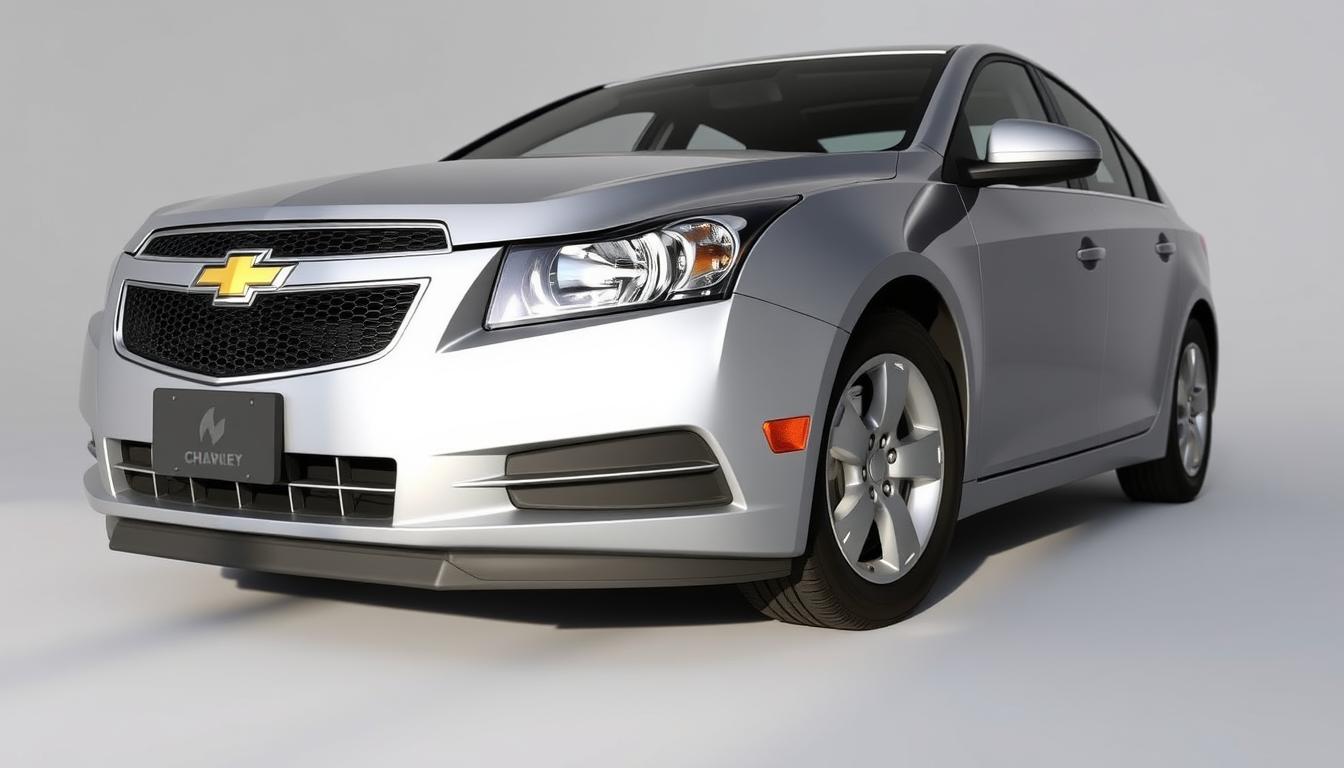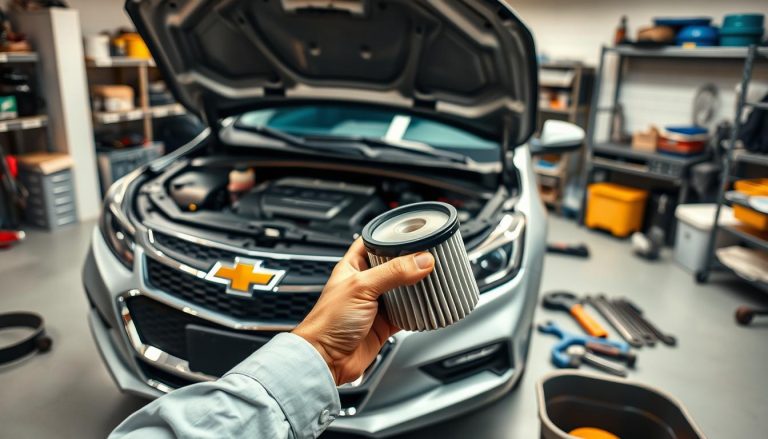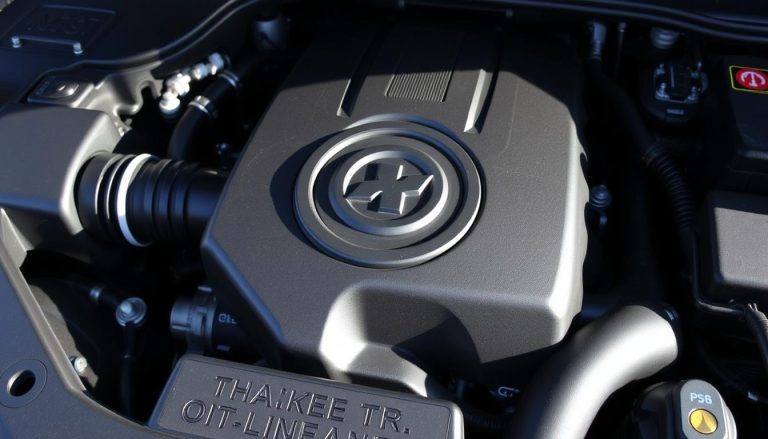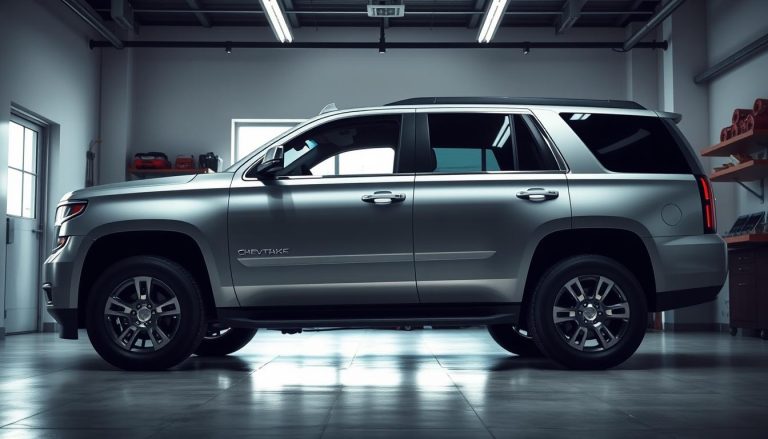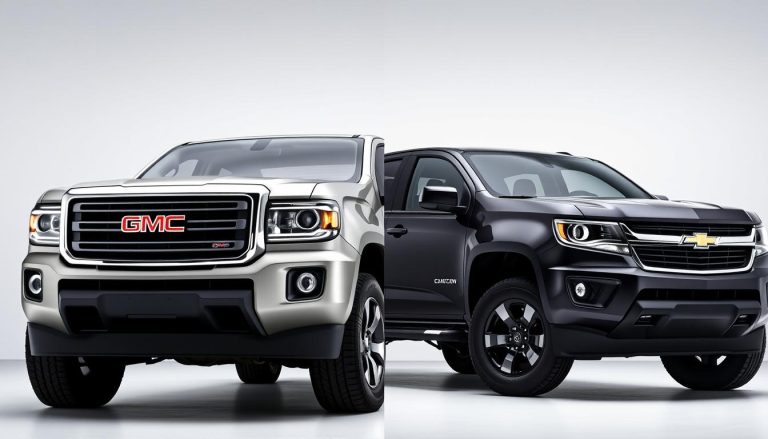Addressing Common 2013 Chevy Cruze Problems
The 2013 Chevy Cruze was a hit in the US, known for its stylish look and good price. But, owners have found some big problems with this car. These issues need to be looked at closely.
People looking for a reliable car should know about the 2013 Chevy Cruze’s issues. This model year had problems that could affect how well the car runs and how happy you’ll be owning it.
Experts and reviews have pointed out several concerns with this car. Knowing about these issues helps owners take better care of their cars. It also helps people thinking about buying one to make a smart choice.
We’ll dive into the most common problems with the 2013 Chevy Cruze. We’ll talk about how to figure out what’s wrong, how to fix it, and how to keep it running well.
Overview of the 2013 Chevy Cruze Performance and Reliability
The 2013 Chevy Cruze was a big hit in the compact car world. It was known for being efficient, affordable, and stylish. But, some owners talked about known problems with the 2013 Chevy Cruze. So, it’s important to know how it performed overall.
Sales Statistics and Market Position
Chevrolet aimed the Cruze at people who wanted a good deal on a car. The 2013 model did well in the US market. It sold a lot of cars.
- Ranked among top 5 compact sedans in sales
- Attracted younger demographic buyers
- Competitive pricing strategy
Vehicle Specifications and Features
The 2013 Chevy Cruze came in different versions to meet various needs. It was known for its performance and efficiency.
| Specification | Details |
|---|---|
| Engine Options | 1.4L Turbo, 1.8L Standard |
| Transmission | 6-speed automatic/manual |
| Fuel Economy | Up to 38 MPG highway |
| Seating Capacity | 5 passengers |
General Reliability Ratings
Reliability of the 2013 Chevy Cruze was mixed in different reports. It was seen as reliable by many, but some issues affected its reputation.
- J.D. Power Reliability Rating: 3.5/5
- Consumer Reports: Moderate reliability
- Long-term durability: Mixed reviews
2013 Chevy Cruze Problems: Most Reported Issues
The 2013 Chevy Cruze has faced several engine problems and common issues. These challenges are important for both new buyers and current owners. They help in making informed decisions and addressing maintenance needs.
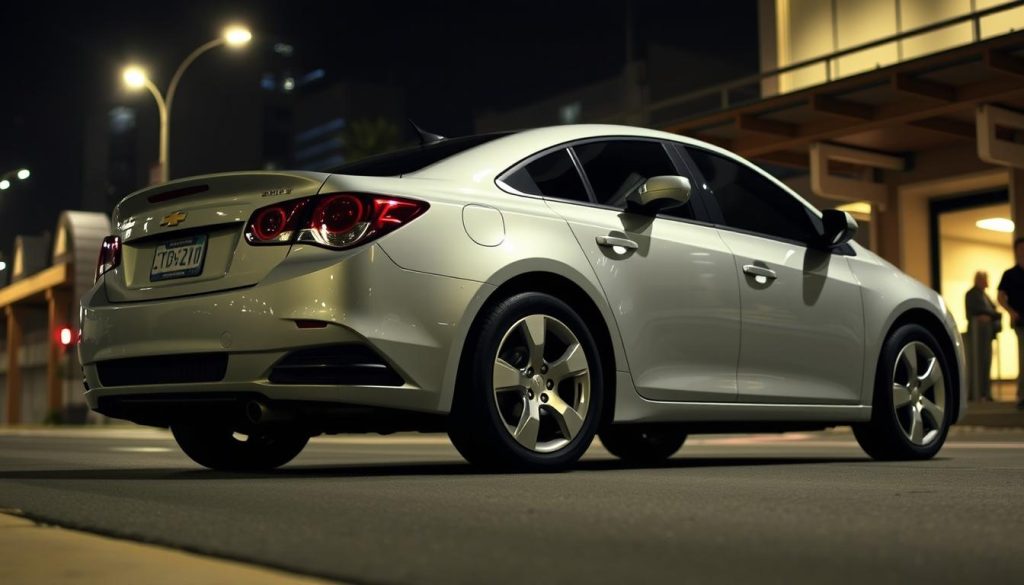
Many owners of the 2013 Chevy Cruze have reported significant issues. Engine problems are a major concern, with several recurring issues. These problems need careful attention.
- Engine performance inconsistencies
- Unexpected electrical system failures
- Transmission shifting complications
- Cooling system vulnerabilities
- Premature component wear
The 2013 Chevy Cruze has several critical areas of concern. Our detailed analysis shows patterns of maintenance challenges for this model year.
| Problem Category | Frequency | Severity |
|---|---|---|
| Engine Performance | High | Moderate to Severe |
| Electrical System | Moderate | Low to Moderate |
| Transmission Issues | Moderate | Moderate |
| Cooling System | Low | Moderate |
Drivers should watch for early warning signs and do regular diagnostic checks. Proactive maintenance can greatly reduce long-term complications from these issues.
Engine-Related Problems and Solutions
The 2013 Chevy Cruze has faced several engine issues. Knowing about these problems can help drivers keep their car running well. It can also prevent expensive repairs.
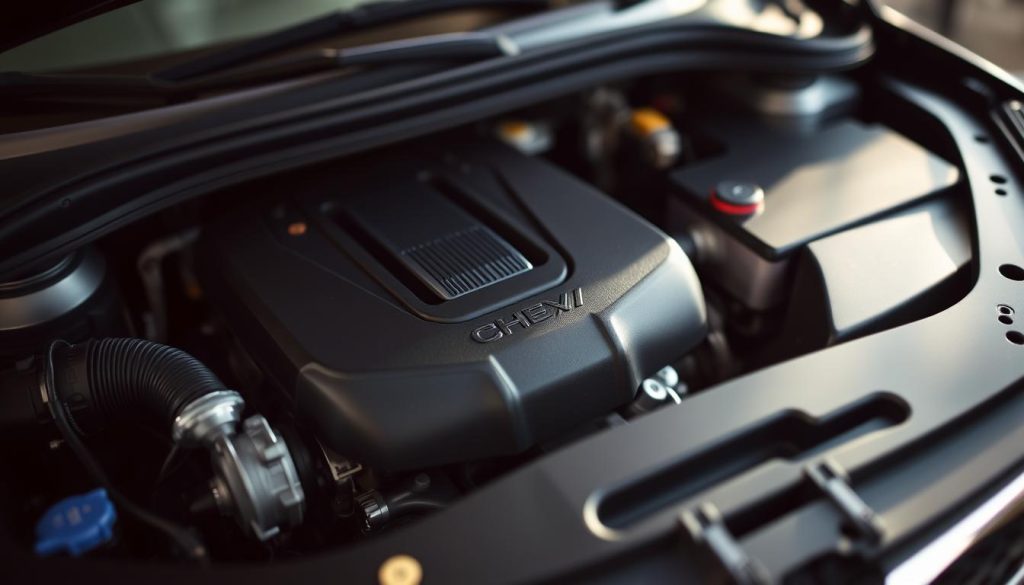
When dealing with 2013 Chevy Cruze engine problems, owners often face specific challenges. These need careful attention and a professional diagnosis.
Coolant Leaks and Cooling System Issues
Engine troubles in the 2013 Chevy Cruze often show up in the cooling system. Drivers might see:
- Persistent coolant leaks underneath the vehicle
- Unexplained temperature fluctuations
- Low coolant levels without visible external damage
These signs could mean problems with the water pump, radiator, or hoses. A professional check is key to avoid engine damage.
Turbocharger Failures
The turbocharged engines in the 2013 Chevy Cruze face unique issues. Common turbocharger problems include:
- Reduced engine power
- Unusual whistling or whining sounds
- Increased exhaust smoke
Seeing these signs means you should get your car checked right away. This can stop serious engine damage.
Oil Consumption Concerns
Some 2013 Chevy Cruze models use more oil than usual. Signs of oil-related engine problems include:
- Frequent need to top up engine oil
- Low oil pressure warnings
- Unexpected oil level drops between scheduled changes
Checking the oil regularly and getting professional maintenance can help. This can solve oil-related engine issues in the 2013 Chevy Cruze.
Transmission Issues and Warning Signs
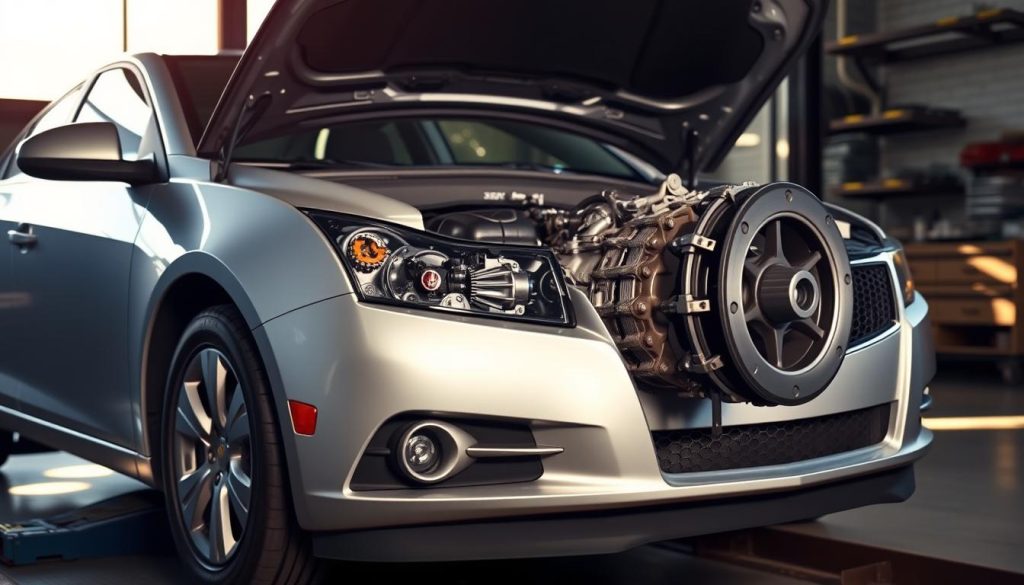
Many owners of the 2013 Chevy Cruze have faced serious transmission problems. These issues can affect how well the car runs and even safety. The defects in the transmission of the 2013 Chevy Cruze have worried many drivers.
Some common signs of transmission trouble in the 2013 Chevy Cruze include:
- Unexpected gear slipping during acceleration
- Rough or jerky shifting between gears
- Unusual grinding or whining noises
- Delayed engagement when shifting from park to drive
- Transmission fluid leaks underneath the vehicle
These problems can come from a few places, like bad manufacturing or not taking care of the car. It’s important for drivers to watch for any odd behavior from the transmission. Fixing these issues early can stop bigger problems later.
Checking for transmission problems usually means a mechanic’s visit and possibly checking the fluid. They suggest changing the transmission fluid regularly and watching how the car performs. This can help avoid bigger issues with the transmission.
Fixing a transmission can cost a lot, from $1,500 to $4,000. Finding and fixing problems early is key to avoiding big repair bills.
Electrical System Complications
The 2013 Chevy Cruze had several electrical system problems. These issues can really affect how well the car works and how reliable it is. It’s important for owners to know about these problems to keep their cars running right.
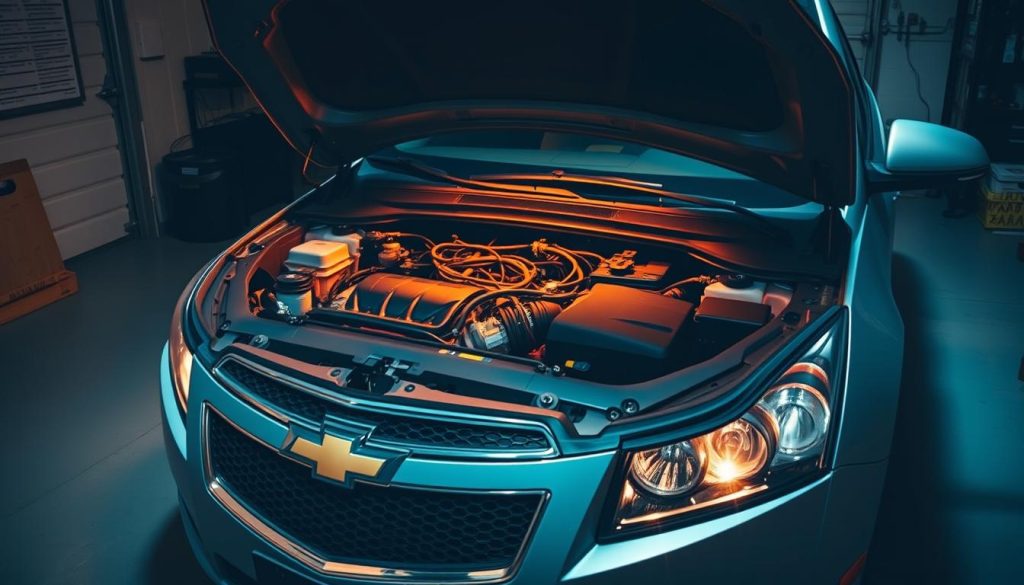
These electrical problems can show up in different ways. They can be tricky to figure out and might need a pro to fix. This is to avoid bigger problems later on.
Battery Drain Problems
Battery drain is a big deal for the 2013 Chevy Cruze. It can happen when the battery uses up too much power. This can be due to:
- Faulty parasitic draws
- Malfunctioning electrical components
- Intermittent electrical system failures
Starter System Failures
Starter system problems can make it hard to start the car. You might hear clicking sounds or the engine won’t crank right. Sometimes, the starter motor just stops working.
- Clicking sounds during startup
- Intermittent engine cranking
- Complete starter motor failure
Dashboard Electronic Malfunctions
Problems with the car’s dashboard can be a safety issue. They can make it hard to get important info. These issues might include:
| Issue Type | Potential Symptoms |
|---|---|
| Display Failures | Flickering screens, blank displays |
| Warning Light Errors | Incorrect warning indicators |
| Sensor Miscommunication | Inaccurate readings |
Using professional tools can help find and fix these electrical problems. This keeps the car running well and avoids bigger issues down the road.
Steering and Suspension Concerns
Many owners of the 2013 Chevy Cruze have faced serious steering and suspension issues. These problems can really affect how well the car drives and how safe it is. It’s very important to watch out for these issues to avoid any trouble while driving.
The most common chevy cruze 2013 defects related to steering and suspension include:
- Premature suspension component wear
- Steering wheel vibration at various speeds
- Uneven tire wear
- Alignment difficulties
- Unexpected steering responsiveness
Drivers might notice strange noises when turning, the car bouncing too much, or feeling unstable. These signs could mean there’s a problem with the suspension or steering system.
| Steering Component | Potential Problem | Estimated Repair Cost |
|---|---|---|
| Struts | Premature Wear | $300-$800 |
| Steering Rack | Fluid Leaks | $500-$1,200 |
| Ball Joints | Excessive Play | $200-$500 |
Keeping up with regular maintenance and checks can help spot and fix these issues in the 2013 Chevy Cruze. It’s best to have a professional look at your car to make sure it’s running right and safely.
Important Safety Recalls and Technical Service Bulletins
The 2013 Chevy Cruze had several critical safety recalls. Owners needed to address these issues quickly. It was important to understand these recalls to keep the vehicle safe and running well.
Car makers issued many technical service bulletins. These were to fix mechanical and electrical problems. The goal was to protect drivers and keep the vehicle in top shape.
Major Recall Campaigns
Important recall campaigns for the 2013 Chevy Cruze focused on key safety parts:
- Electrical system short circuits
- Brake system issues
- Steering column problems
- Airbag system irregularities
Factory-Issued Solutions
Chevrolet came up with detailed repair plans for the problems found. These fixes included:
- Free part replacements
- Software updates
- Mechanical system adjustments
- Complete system checks
Dealer Response Programs
Chevrolet dealerships were key in fixing recall issues. Owners were told to contact their local dealer with their vehicle’s ID number to check for recalls.
Regular maintenance and keeping up with manufacturer advice were key. They helped ensure the vehicle’s safety and longevity.
Maintenance Tips and Prevention Strategies
Keeping your Chevy Cruze 2013 in top shape is key. By following a good maintenance plan, you can make your car last longer. This includes using smart troubleshooting methods.
Here are some important maintenance tips for the 2013 Chevy Cruze:
- Regular oil changes every 5,000-7,500 miles
- Consistent tire rotation and alignment checks
- Quarterly brake system inspections
- Timely coolant system maintenance
Fixing problems with your 2013 Chevy Cruze starts with being proactive. Spotting issues early can save you money and keep your car running smoothly.
Here are some critical maintenance tips:
- Check and replace air filters annually
- Monitor transmission fluid levels
- Inspect battery connections quarterly
- Listen for unusual engine sounds
Using high-quality parts and sticking to Chevrolet’s maintenance schedule is smart. It helps avoid mechanical problems and keeps your car reliable.
Experts recommend keeping a detailed maintenance log. This helps track your Chevy Cruze’s health and spot problems early.
Conclusion
The 2013 Chevy Cruze has both good and bad points. It’s a reliable car for many, but knowing its common problems is key. Keeping up with maintenance and catching issues early can make it last longer.
Owners should get regular check-ups and watch for recalls. We’ve seen how good maintenance can fix many issues. Knowing about service bulletins and following service schedules can also save money on repairs.
Chevrolet has been trying to make the Cruze better. Even with its problems, it’s a strong choice in the compact car market. Buyers should do their homework, check the car’s history, and get it inspected before buying.
Knowing what to expect and taking care of your car can make a big difference. By staying on top of maintenance and fixing problems fast, you can keep your 2013 Chevy Cruze running well. It’s all about being proactive and informed.

